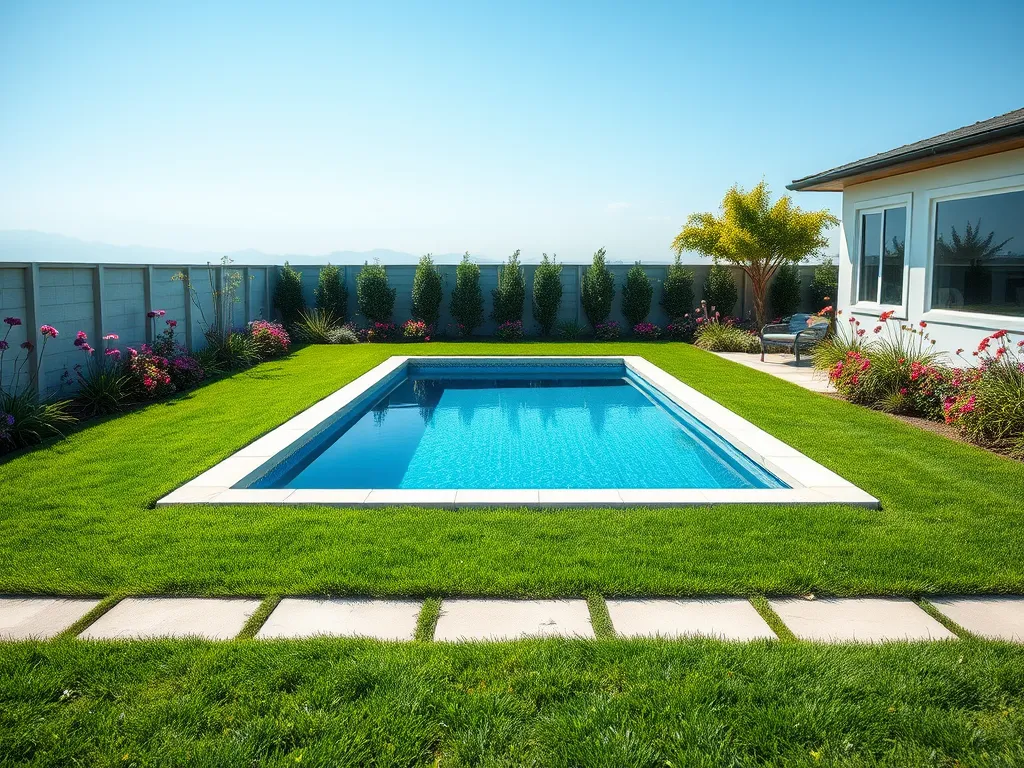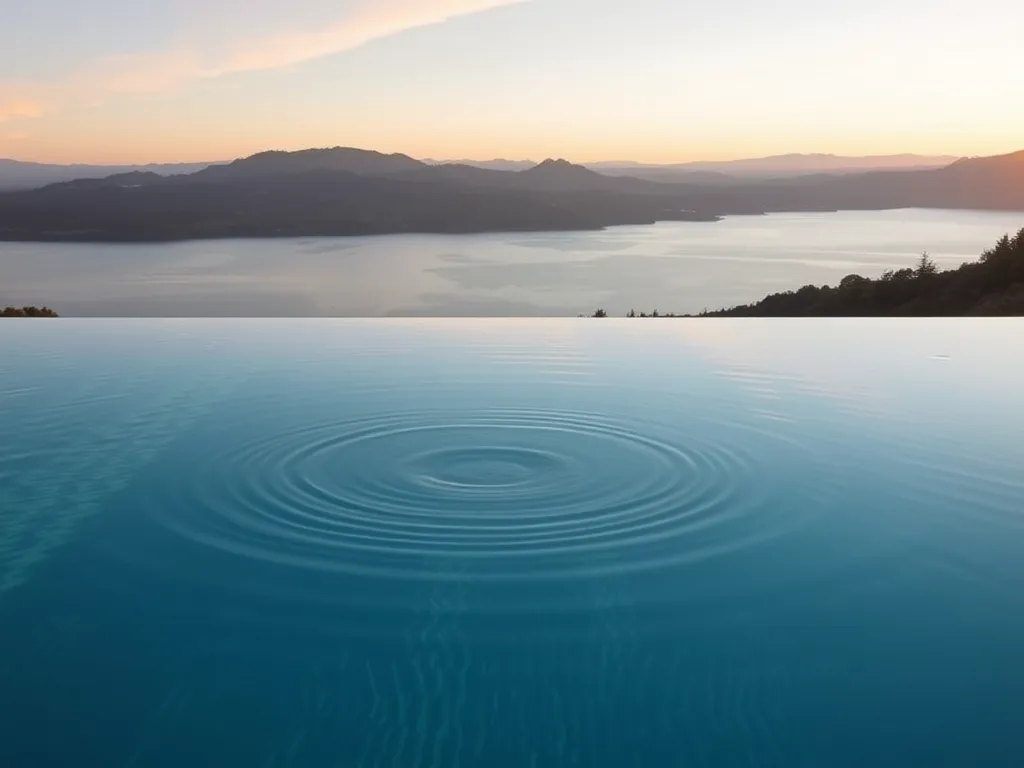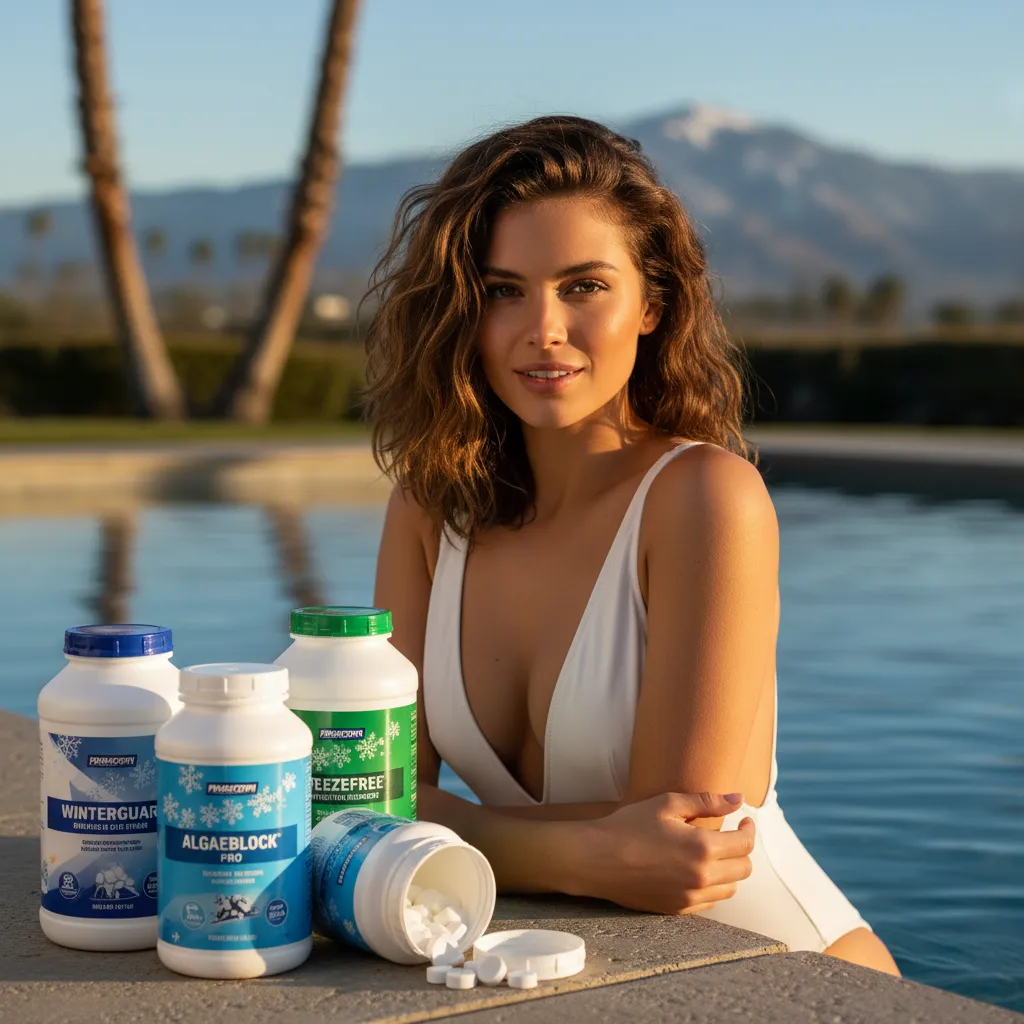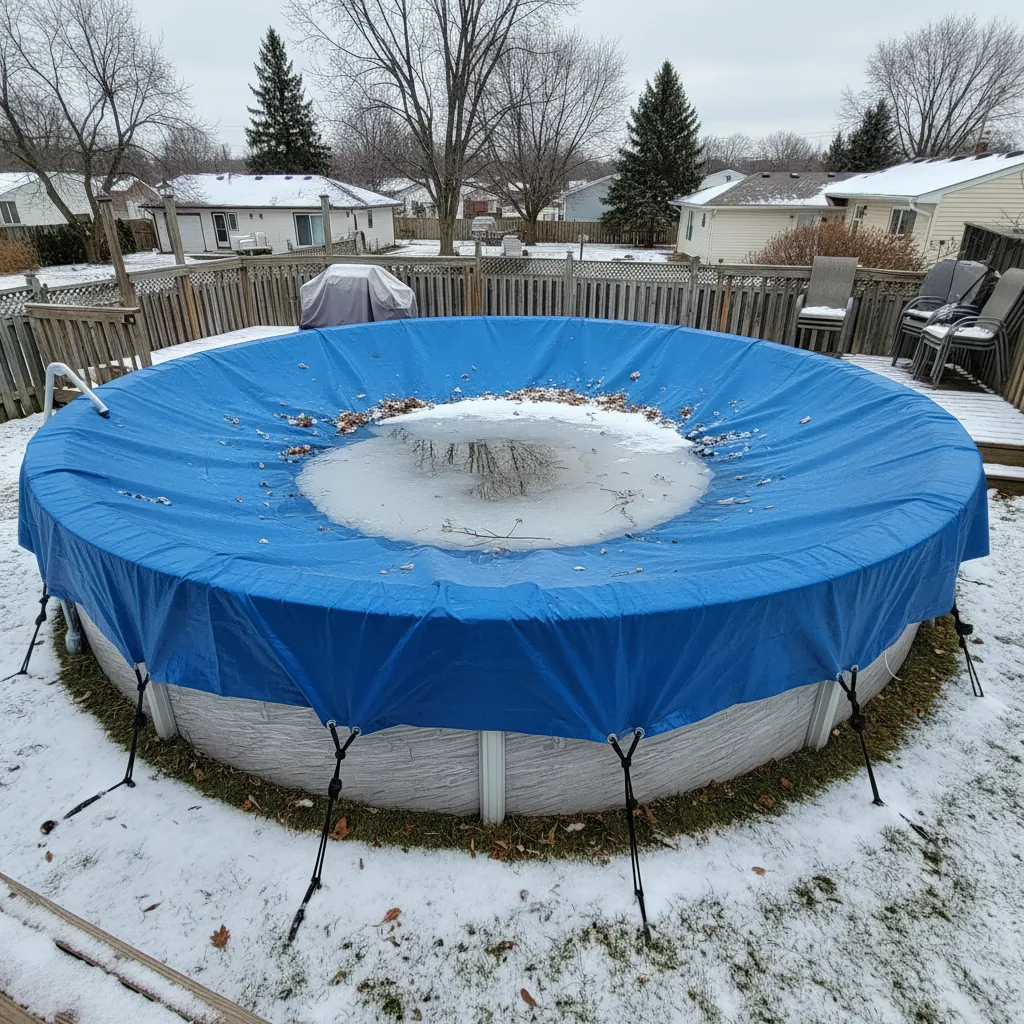Pool Gallon Calculator: Find Your Pool’s Water Capacity
Published on: April 11, 2025 | Last Updated: April 13, 2025
Written By: Rachael Weatherbottom
Knowing your pool’s gallon capacity helps with chemical dosing, filtration, and maintenance. Use this calculator to estimate how many gallons of water your pool holds. Your pool’s shape and measurements determine the final calculation. Always measure accurately for best results.
Pool Volume Calculator
- Select your pool shape from the dropdown
- Enter measurements in feet
- Click “Calculate”
Factors Influencing Pool Water Volume Calculations
Accurate pool gallon measurements depend on three primary variables: shape, dimensions, and average depth. Even minor errors in these metrics create cascading effects on chemical dosing and equipment performance. When you have the correct gallon measurement, it becomes easier to manage the balance of chemicals. Properly measuring pool chemicals is essential for maintaining a clean and safe swimming environment.
Pool Shape Complexity
Standard geometric forms like rectangles and circles follow straightforward formulas. Freeform designs with curved walls or irregular angles require segmented measurements. Kidney-shaped pools, for example, combine circular and rectangular calculations:
- Rectangular: Length × Width × Average Depth × 7.48
- Circular: π × Radius² × Average Depth × 7.48
- Kidney: (Large Circle Area – Small Circle Area) × Average Depth × 7.48
Depth Variations
Pools with sloping floors demand precise average depth calculations. Measure shallow end, deep end, and midpoint depths. Add them, then divide by three. A pool transitioning from 3ft to 9ft has a 5ft average depth (3+6+9=18; 18/3=6).
Water Displacement Factors
These elements reduce actual water volume by 2-15%:
| Element | Volume Reduction |
|---|---|
| Built-in steps | 50-300 gallons |
| Diving board | 20-75 gallons |
| Pool cover anchors | 10-40 gallons |
| Decorative rock formations | 100-800 gallons |
Standard Formulas for Common Pool Shapes
These equations form the foundation of all professional volume estimates. Measurements should be in feet for imperial gallon calculations (1 cubic foot = 7.48 gallons).
Rectangular Pools
The simplest calculation method:
re>Gallons = Length × Width × Average Depth × 7.48
A 20ft × 40ft pool with 6ft average depth holds 20×40×6×7.48 = 35,904 gallons.
Circular Pools
Radius-based calculation for round designs:
re>Gallons = π × (Radius)² × Average Depth × 7.48
A 24ft diameter pool (12ft radius) with 4.5ft depth: 3.14×144×4.5×7.48 = 15,287 gallons.
Oval Pools
Combine rectangular and circular principles:
re>Gallons = Long Diameter × Short Diameter × Average Depth × 5.9
30ft × 15ft oval pool at 5ft depth: 30×15×5×5.9 = 13,275 gallons.
Also See: Pool Build Cost Calculator for Easy Estimates

Impact Of Accurate Volume on Maintenance
Precision directly affects chemical efficacy and equipment longevity. A 10% volume error causes:
- 15-20% chlorine dosage inaccuracies
- 7% pH balancing errors
- $45-120/year in wasted chemicals (for 20,000-gallon pools)
Filtration System Requirements
Pump sizing depends on total gallons and desired turnover rate:
| Pool Type | Ideal Turnover Time | Pump GPM Needed |
|---|---|---|
| Residential | 8 hours | Gallons ÷ 480 |
| Commercial | 6 hours | Gallons ÷ 360 |
A 25,000-gallon home pool requires 25,000 ÷ 480 = 52 GPM pump capacity.
Seasonal Volume Adjustments
Water levels fluctuate annually due to environmental factors. Regular recalibration maintains calculation accuracy.
Evaporation Rates
Average daily water loss in temperate climates:
- Summer: 0.25-0.5 inches/day (150-300 gallons/month for 400sqft surface)
- Winter: 0.1-0.3 inches/day with covers
Rainfall Compensation
1 inch of rain adds 623 gallons per 100sqft of surface area. A 600sqft pool gains 3,738 gallons from a 1″ downpour.
Specialized Pool Configurations
Complex designs require advanced calculation methods beyond standard formulas.
Infinity Edge Pools
Account for catch basin volume in total calculations. A typical 16ft overflow edge requires 800-1,200 gallons in the reservoir tank.
Vanishing Edge Designs
Total volume includes:
- Main pool
- Catch basin
- Plumbing system water
Add 8-12% to main pool volume for accurate totals.

Chemical Dosing Based on Gallonage
Common chemical adjustments per 10,000 gallons:
| Chemical | Adjustment | Amount |
|---|---|---|
| Chlorine (liquid) | Raise 1ppm | 13 oz |
| pH (muriatic acid) | Lower 0.1 | 16 oz |
| Alkalinity (baking soda) | Raise 10ppm | 1.5 lbs |
FAQs: Pool Volume Essentials
How Often Should I Recalculate Pool Volume?
Conduct full recalculations after structural modifications or liner replacements. Seasonal adjustments should account for water loss/gain monthly.
Do Pool Covers Affect Volume Calculations?
Covers reduce evaporation but don’t change total volume. However, winter covers may require partial draining to prevent waterlogging.
How Does a Saltwater System Impact Volume Needs?
Saltwater pools require precise gallonage for proper chlorine generation. A 15% calculation error can damage salt cells or reduce sanitization efficacy.
Advanced Calculation Techniques
Professionals use these methods for irregular shapes:
Segmentation Method
- Divide pool into geometric sections
- Calculate each area separately
- Sum totals
Water Meter Measurement
Track fill volume directly:
- Record pre-fill meter reading
- Fill pool to desired level
- Subtract initial reading
Cost Implications Of Pool Volume
Annual maintenance costs scale directly with gallonage:
| Pool Size | Chemical Costs | Heating Costs |
|---|---|---|
| 10,000 gal | $400-600 | $800-1,200 |
| 20,000 gal | $750-1,100 | $1,500-2,300 |
For precise chemical dosing, equipment sizing, and cost forecasting, visit My Pool Calculator for automated solutions tailored to your specific pool configuration.
Useful References for You:
- ASTM International – Pool & Spa Standards
- Pool Volume Calculator: How Many Gallons of Water Does Your Pool Hold?
- Pool Gallon Calculator | Royal Swimming Pools
A pool care geek who’s been testing water chemistry since she was tall enough to reach the skimmer.
Pool Calculators, Pool Volume





